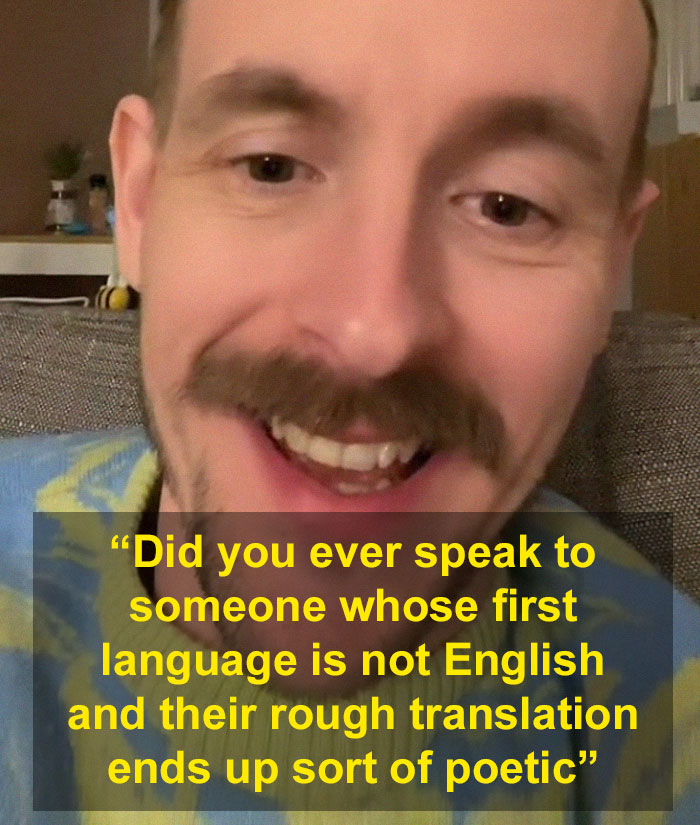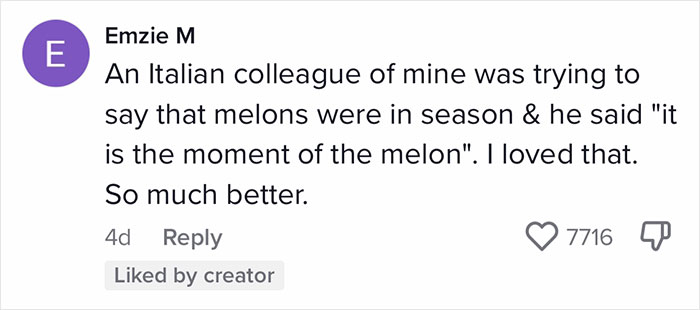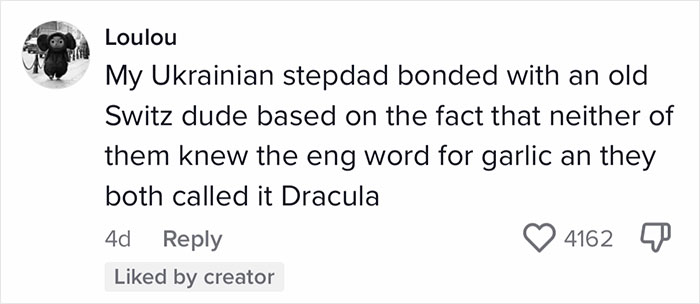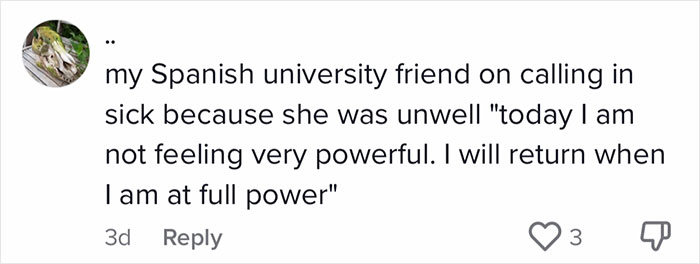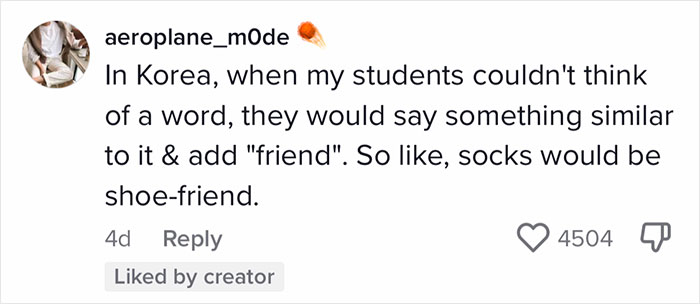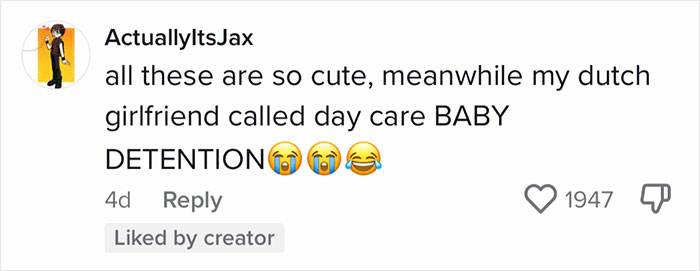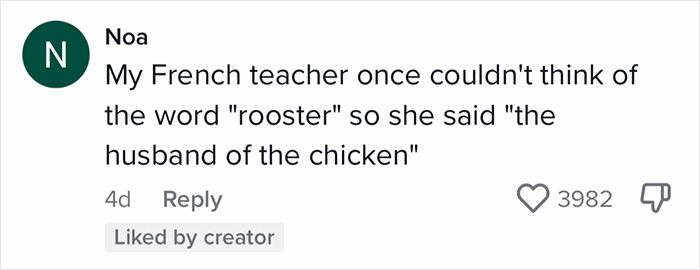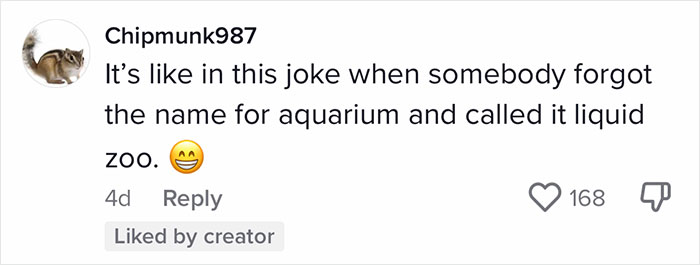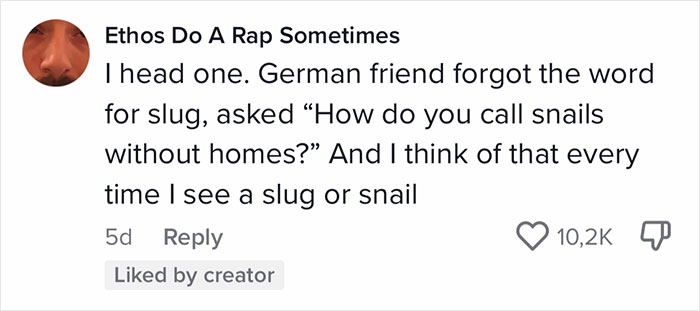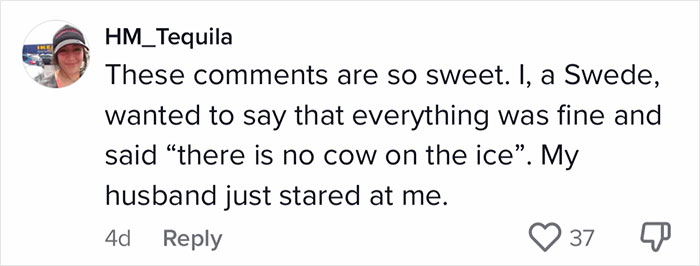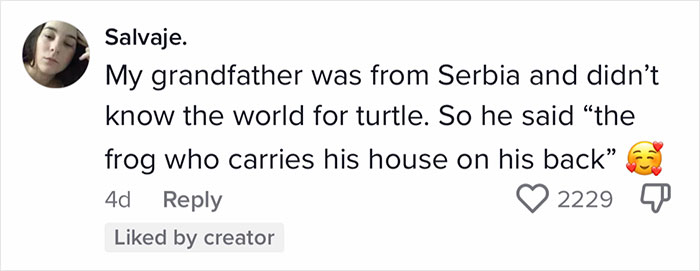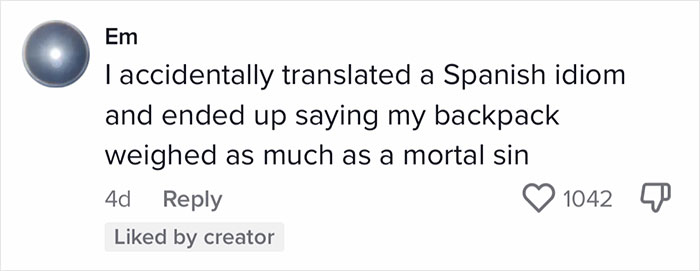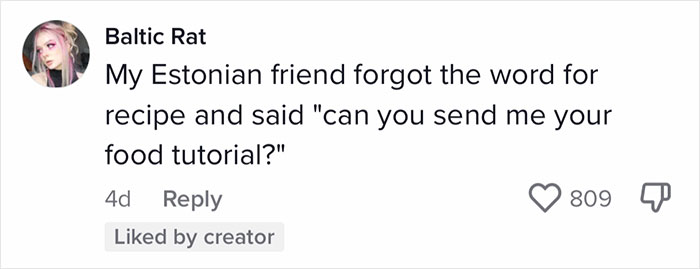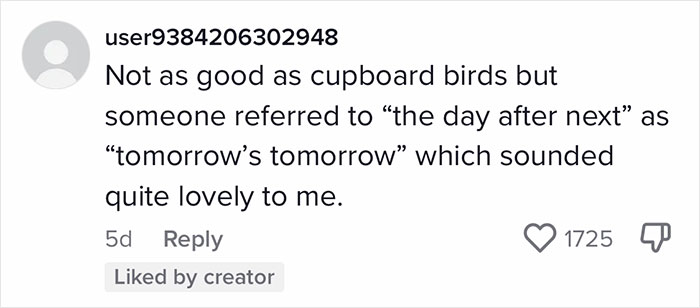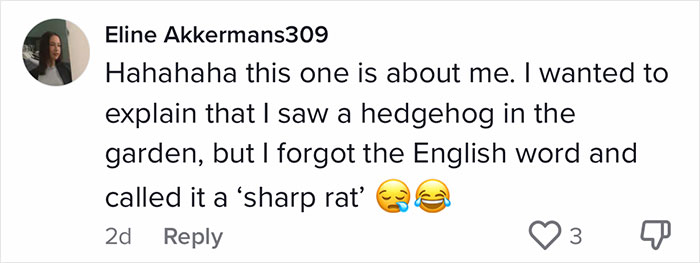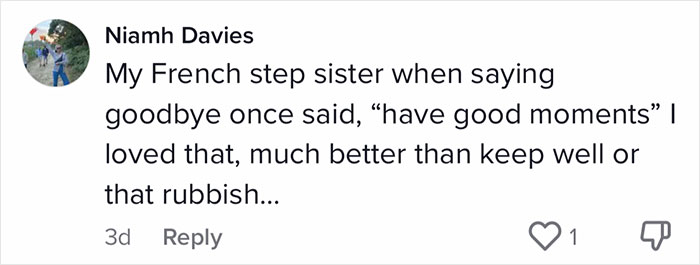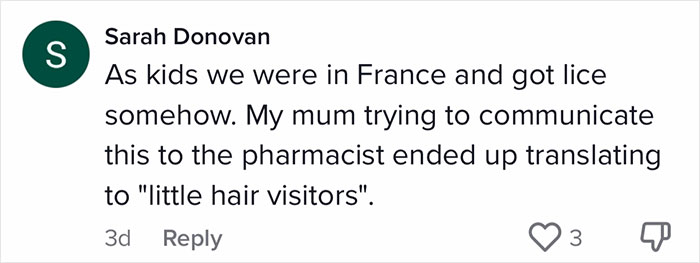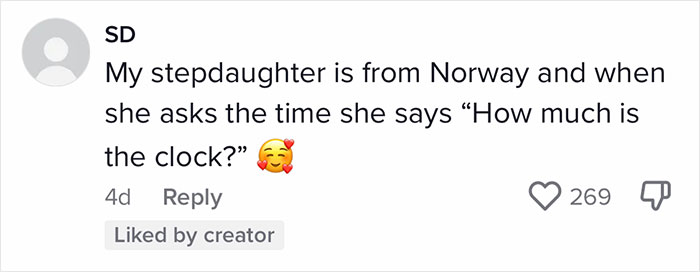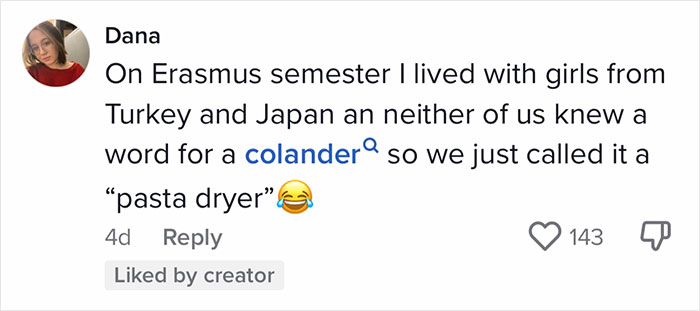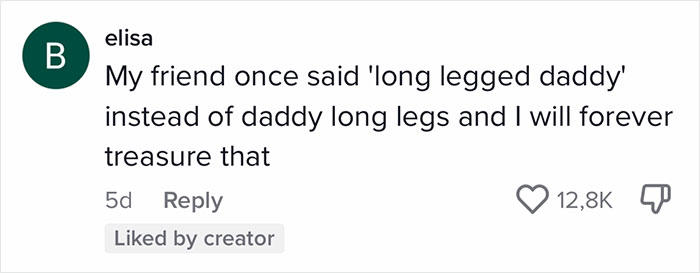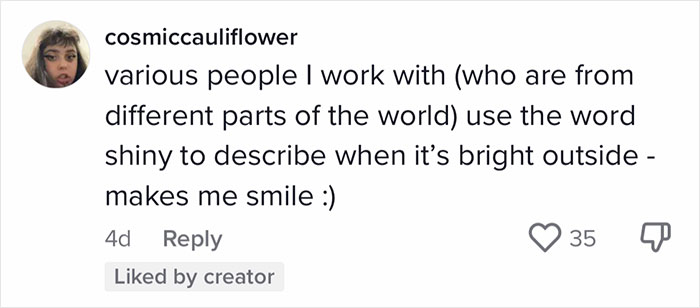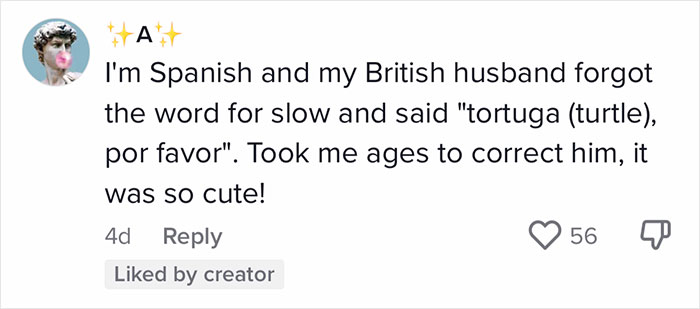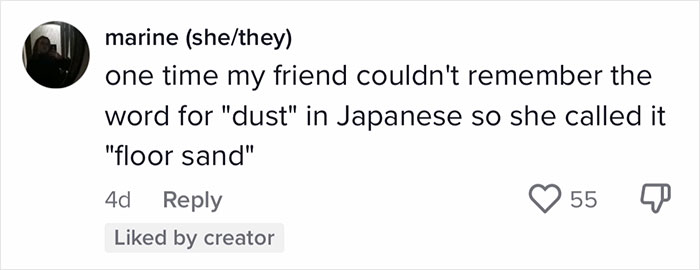A TikToker shared a funny story of a non-native English speaker creating some beautiful, unintentional poetry when trying to discuss moths and it spawned a frenzy of similar stories, phrases, and wonderful expressions. We reached out to Chris Rory, who created the original TikTok, to hear more about his experience and see some other examples.
So get comfortable, pick up a notebook, and get ready to write down some excellent expressions that you should include in your everyday vocabulary. Be sure to upvote your favorites and check out Chris’ TikTok account here.
More info: TikTok
Did you ever speak to someone whose first language is not English and their rough translation ends up sort of poetic.
Like, just them saying it wrong is great.
I lived with a girl who was from the Czech Republic, and we had a moth infestation in our food cupboards. I was trying to talk to her about what to do about it. And she didn’t didn’t know the word moth. So I was off to a rocky start. I was like, “the moths, you know, the moths, they’re like, horrible butterflies. These guys are in the cupboards”
And she’s like, “ah, yes, the cupboard birds.”
I don’t even know if that’s a translation thing. Love it, holding on to that one.
Image credits: chris.rory
#1
Image credits: Tiktok
#2
Image credits: Tiktok
#3
Image credits: Tiktok
Bored Panda reached out to Chris Rory, who created the original TikTok, to ask some more questions. First, we wanted to know if he had any other examples of “accidental poetry that he liked. ”Gosh, it’s hard to think of the beautiful ones, a lot of it is just in the phrasing, adding an extra word here or there that adds emphasis to a sentence that wouldn’t normally be there, but here are some ones I can think of: “Rather is better than better is rather!”
An Italian friend trying to explain something like “It’s better than nothing!” I enjoy that our phrase for remembering how to tighten screws (righty tighty – lefty loosey) has a Spanish equivalent “The Right oppresses, the Left liberates” which I think is wonderful.”
#4
Image credits: Tiktok
#5
Image credits: Tiktok
#6
Image credits: Tiktok
He was also kind enough to share examples he had heard from friends and acquaintances. “A Norwegian colleague once asked me what the English word for “the first piss of the day” was, which alerted me to the idea that we might not have one, but also, that other people do. My Polish mother-in-law often tells jokes but picks the wrong word for the punch line. “A man walks into the doctor totally naked but wrapped in cling film. The doctor says ‘I can clearly see your balls.’”
#7
Image credits: Tiktok
#8
Image credits: Tiktok
#9
Image credits: Tiktok
“I used to live in Japan and I found out while living in Japan that for quite a while, instead of saying ‘housewife’ I had been saying ‘prostitute.’ Turns out I had been mispronouncing either shufu or shoufu,” he added, a good reminder to all of us attempting a new language. Make sure to check if there are similar-sounding words. After all, ship, duck, and stitch are all one letter away from curses.
#10
Image credits: Tiktok
#11
Image credits: Tiktok
#12
Image credits: Tiktok
Chris gave some other examples from Japan.” A Japanese friend once got her hair cut and I tried to tell her it was beautiful and it didn’t get the reaction I expected. I later found out I had told her it looked scary or ugly. The Japanese word ‘chin’ means ‘penis’ so when I taught children things like ‘ears, eyes, chin” they were rolling in laughter and I had no idea why.”
#13
Image credits: Tiktok
#14
Image credits: Tiktok
#15
Image credits: Tiktok
“I guess language is flexible and is supposed to be expressive. Poetry is a way of pushing language by playing with syntax and pairing words in novel ways to create feeling and imagery. When people learn a language they do this naturally because they don’t yet know all of the ‘rules’ of the language, so they break them – the same way poetry does,” he added, when we asked about his thoughts on why these phrases sometimes seem so beautiful.
#16
Image credits: Tiktok
#17
Image credits: Tiktok
#18
Image credits: Tiktok
“I’m not a linguist and I only know scraps of other languages, not enough to speak, but I did use to live communally with about 15-20 people, many of which were non-native speakers, it made for some excellent late-night conversations.” You can find Chris’ TikTok here where he posts funny sketches and talks about his life experience. He also has an Instagram page, which you can find here as well as a travel photo page, which you can find here.
#19
Image credits: Tiktok
#20
Image credits: Tiktok
#21
Image credits: Tiktok
#22
Image credits: Tiktok
#23
Image credits: Tiktok
#24
Image credits: Tiktok
#25
Image credits: Tiktok
#26
Image credits: Tiktok
#27
Image credits: Tiktok
#28
Image credits: Tiktok
#29
Image credits: Tiktok
#30
Image credits: Tiktok
#31
Image credits: Tiktok
#32
Image credits: Tiktok
#33
Image credits: Tiktok
#34
Image credits: Tiktok
#35
Image credits: Tiktok
#36
Image credits: Tiktok
#37
Image credits: Tiktok
#38
Image credits: Tiktok
#39
Image credits: Tiktok
#40
Image credits: Tiktok
#41
Image credits: Tiktok
#42
Image credits: Tiktok
#43
Image credits: Tiktok
#44
Image credits: Tiktok
#45
Image credits: Tiktok
#46
Image credits: Tiktok
#47
Image credits: Tiktok
#48
Image credits: Tiktok
#49
Image credits: Tiktok
#50
Image credits: Tiktok
Go to Source
Author: Austėja Akavickaitė
